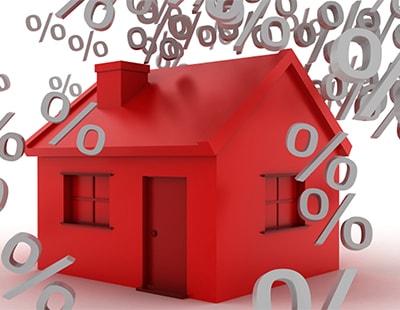
Almost 155,000 home sellers could be impacted by a drop in house prices but it may only last for a couple of months, research claims.
Agency comparison website GetAgent analysed property market data going back to 2005, looking at each period of house price decline, the level of transactions impacted by falling house prices and how long this period of decline lasted before positive house price growth returned.
The research shows that across Britain, there have been 32 periods of house price decline since 2005, the majority of which have been singular monthly declines, with the worst lasting 10.
On average, these periods of decline have lasted just 2.2 months, with an average of 154,704 transactions taking place, meaning an estimated 69,766 home sellers per month are thought to have been impacted by falling house prices.
In contrast, there have also been 32 periods of buoyant house price growth, lasting 4.4 months on average, with the longest running for 19 months in 2015. During these more buoyant periods, an average of 381,452 homes were sold, meaning an estimated 85,961 home sellers per month benefitted from appreciating property values, according to the research.
England is home to the strongest market when it comes to the balance between boom and bust, with the average period of house price decline lasting 2.3 months versus an average of 4.6 months when house prices have climbed.
Scotland has a more balanced market, with house prices falling by an average of two months, whilst periods of house price growth typically last just 2.6 months.
Wales is home to the lowest average period of house price decline at 1.5 months, although periods of property price appreciation also only last for an average of 2.3 months.
Colby Short, chief executive of GetAgent, said: “The property selling process is a protracted one and as our research shows, any period of downward price movement is generally short lived, not to mention often marginal.
“Of course, historic data can only provide insight into the past performance of the market and it certainly doesn’t provide a guarantee of future market trends. But while we may have seen a slight reduction on a month-to-month basis, the overall market is still in very fine shape and sellers remain in a very strong position as a result.”









.jpg)









%20-%20IMAGE%20Client%20Accounting%20%E2%80%93%20what%20are%20your%20options.jpg)


.png)
.png)
.png)
%20(002).png)






%20(002).jpg)













Join the conversation
Jump to latest comment and add your reply
Everyone seems to ignore, for reasons I cannot fathom, that our housing market, during any period of recession, invariably bounces back first, for one very simple reason! Our supply and demand ratio is so fantastically out of line that the demand will always, even in a slump, exceed the actual supply of housing available. The fault is clearly down to our totally inadequate planning system which needs a dramatic and urgent overhaul, as it is not fit for purpose, with far too many good applications being rejected by planning authorities whose operatives are just not up to the job, and I say that from seriously bitter experience. We will always have housing shortages, until we have a planning system that is quick, efficient, and up to the task.
No
The UK is just hugely overpopulated
I want less building I do not want the homes of wildlife destroyed
No
The UK is just hugely overpopulated
I want less building I do not want the homes of wildlife destroyed
In general terms, the demand for housing greatly outstrIps current supply. However, the focus at present should be upon 'effective demand' which relates to the ability and willingness to buy an expensive commodity like a house. The 'ability' is being hampered by higher mortgage costs, the house price / income ratio and cost of living factors; the 'willingness' must be seen in relation to the growing belief that house prices are due to decline - this psychological factor is gaining traction and people become (justifiably) afraid of losing money on such a big ticket item, especially FTB facing the prospect of negative equity. A bonus - this situation should help to prop up the rental market .
I think the UK housing market is inevitably going to enter a down phase in the property cycle over the next couple of years, before resuming its long- term upward trend, based on the fundamental fact that the demand for housing outstrIps the supply; I cannot foresee how this can change, given UK population growth, existing planning laws and Nimbyism.
Please login to comment